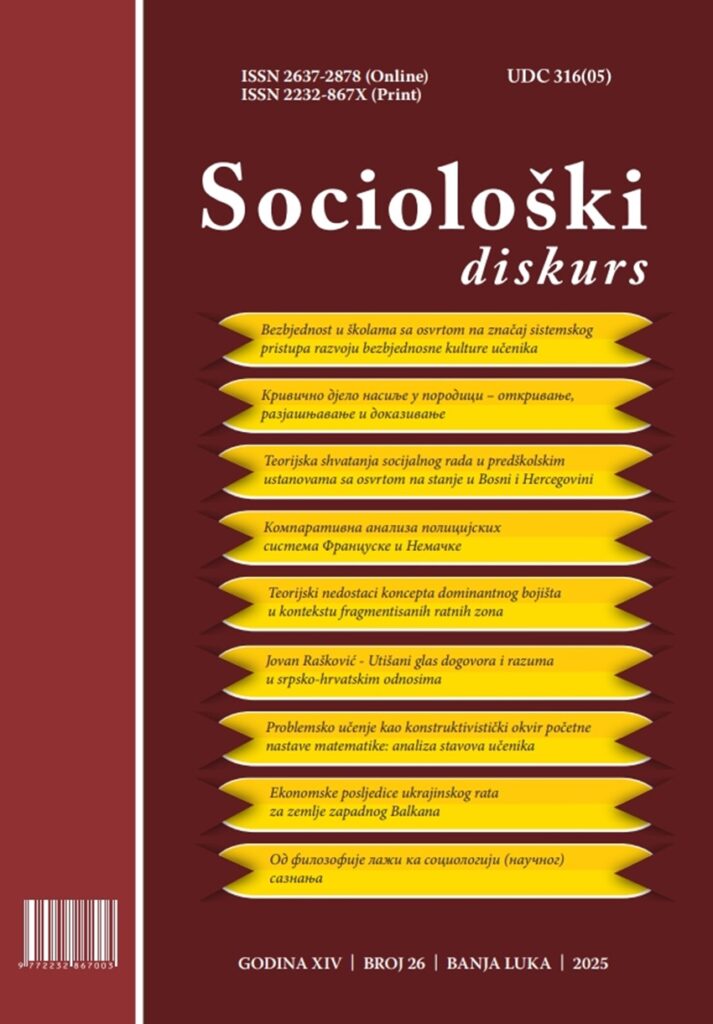THEORETICAL CONCEPTIONS OF SOCIAL WORK IN PRESCHOOL INSTITUTIONS WITH A FOCUS ON THE SITUATION IN BOSNIA AND HERZEGOVINA
DOI:
https://doi.org/10.7251/SOCEN2526041PAbstract
Social work in preschool institutions plays a crucial role in promoting children’s well-being, ensuring inclusion, and providing support to families in addressing social and emotional difficulties. In Bosnia and Herzegovina, social work in preschool institutions is regulated by legal frameworks; however, its implementation in practice is limited and unevenly distributed. This paper analyzes the current state of social work in preschool institutions in Bosnia and Herzegovina, compares it with regional practices, and offers recommendations for improving its application. Grounded in theoretical frameworks of social work, this study draws upon Bronfenbrenner’s ecological theory, which emphasizes the multilayered environmental influences on child development, resilience theory, which focuses on the mechanisms enabling children and families to adapt to stressful situations, and systems theory, which highlights the importance of an integrated approach in social work. Furthermore, social capital theory provides insight into the role of social workers in building support networks, while critical and anti-discriminatory theory underscores the importance of social work in reducing social inequalities and advocating for inclusive policies. The analysis reveals that social work in preschool institutions in Bosnia and Herzegovina remains underdeveloped, with a limited number of professionals and an inadequate legal framework. A comparative examination with regional countries highlights the need for systemic reforms, enhanced interdisciplinary cooperation, and the permanent employment of social workers in preschool institutions.
